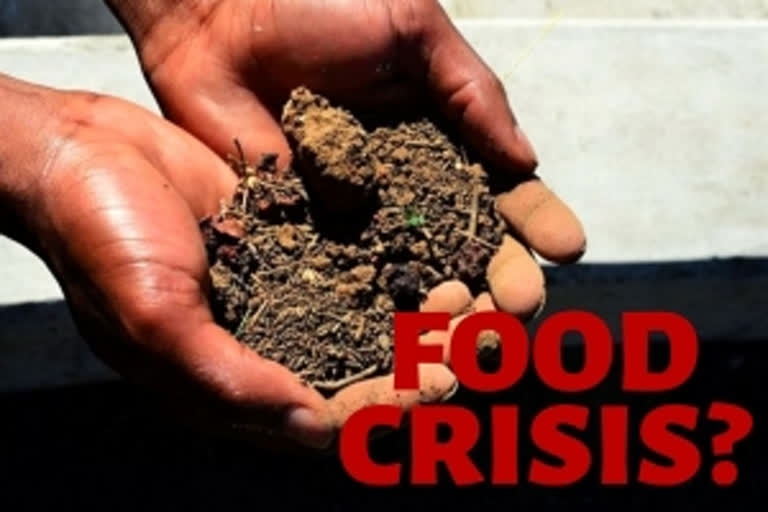New Delhi:The human life is entirely dependent on mother earth. She provides food to human beings, animals and birds. Fertile land helps them produce more food grains for everyone.
But mother earth is losing her fertility due to various reasons garnered by humans themselves. Soil erosion has become a major challenge to people as, without soil, the amount of food for living beings will begin to degrade.
The United Nations Organisation has been celebrating World Soil Day every December since 2013. This year's slogan for the Soil Day celebrations is 'keeping a check on soil erosion and protecting mankind and living organisms on earth'.
Soil erosion has adverse effects on the progress of mankind across the globe.
International Food and Agriculture Organization director, Prof Maria Salina Amedo's comments on the environment reflect that several governments across the world are in an urgent need of a plan to be implemented to check soil erosion.
There is no doubt on the fact that fertile land is essential for the good health of people in any country.
We get 95 per cent food and 99.9 per cent drinking water from the earth. Soil stabilises the amount of carbon in the atmosphere and reduces pollution up to a great extent. It water and nutrients required by crops and forest.
Thus, it is the key to food production, cloth, wood and medicines. But human beings are using this essential natural resource very indiscriminately.
Excessive use of chemicals, pesticides, fertilisers unnecessary tilting and unscientific water management has led to a decline in soil quality. The upper layer of soil gets driven away with wind and water due to soil erosion.
According to the Central Soil and Water Protection Organization, about the upper layer of soil on 8.26 cr hectares of land has eroded in recent years.
Around 5,334-ton fertile soil and 84 lakh ton of nutrients wash away every year leading to a reduction in productivity and water-holding capacity of the soil. According to the Food and Agriculture Organisation's (AFO) estimate, soil erosion will increase up to 90 per cent from the present 30 per cent by 2050.
The UNO has also issued warnings of food crisis leading to deteriorating financial health of rural poor. It may cause famines in the long run, leading to people migrating to places with better food availability. Migration is already a problem across African nations along with the Indian States like Madhya Pradesh, Uttar Pradesh, Chhattisgarh, Bihar, Jharkhand and Odisha.
If the present situation is not dealt with, the world will soon face issues related to food security. Food production is also said to decline up to 50 per cent given the present level of soil erosion.
Father of Green revolution M. S. Swaminathan has opined that crops cultivated in low nutrient soil will produce poor quality food that may have a severe lack of zinc. Also, the consumption of the same will lead to health problems among people.
Formation of an inch of the soil layer takes about a thousand years. Thus, creating an urgent need for conserving the soil layers that are left now. The solution is to prevent the erosion of soil in every way that people can. About 80 per cent of the soil can be saved from eroding simply by planting saplings and other agricultural plants.
So far, about 33 per cent of land across the world is suffering from soil erosion.
If not, the future might turn more disastrous. With the current speed of environmental decline, within a few more years, reservoirs will lose their water-holding capacity, there will be no soil to grow crops in, no water left to drink, lack of habitats and certainly no air to breathe.
Soil erosion has a comparatively deeper impact on the financial condition of agrarian nations like India.
The only solution visible from the current position of humanity is to keep a check on soil erosion unless it wants to run out of food even before it runs out of life. There are voluntary organisations working for environment conservation. And there is a need for more such organisations in which people from all walks of life could work as a team and prepare an action plan for the future.
Organic farming, contour farming, use of least amount of fertilisers, alternate crops help keep a check on eroding layers of soil. Cultivating grass on bare lands as well as short-term crops may also prove to be effective.
But he prime responsibility lies on the shoulders of governments to make and implement plans and spread awareness among people. Farmers need more recognition and help because they are like earthworms that could fix soil health across the world.
Read:|If not onion, does she eat avocado: Chidambaram's sly dig at Sitharaman
